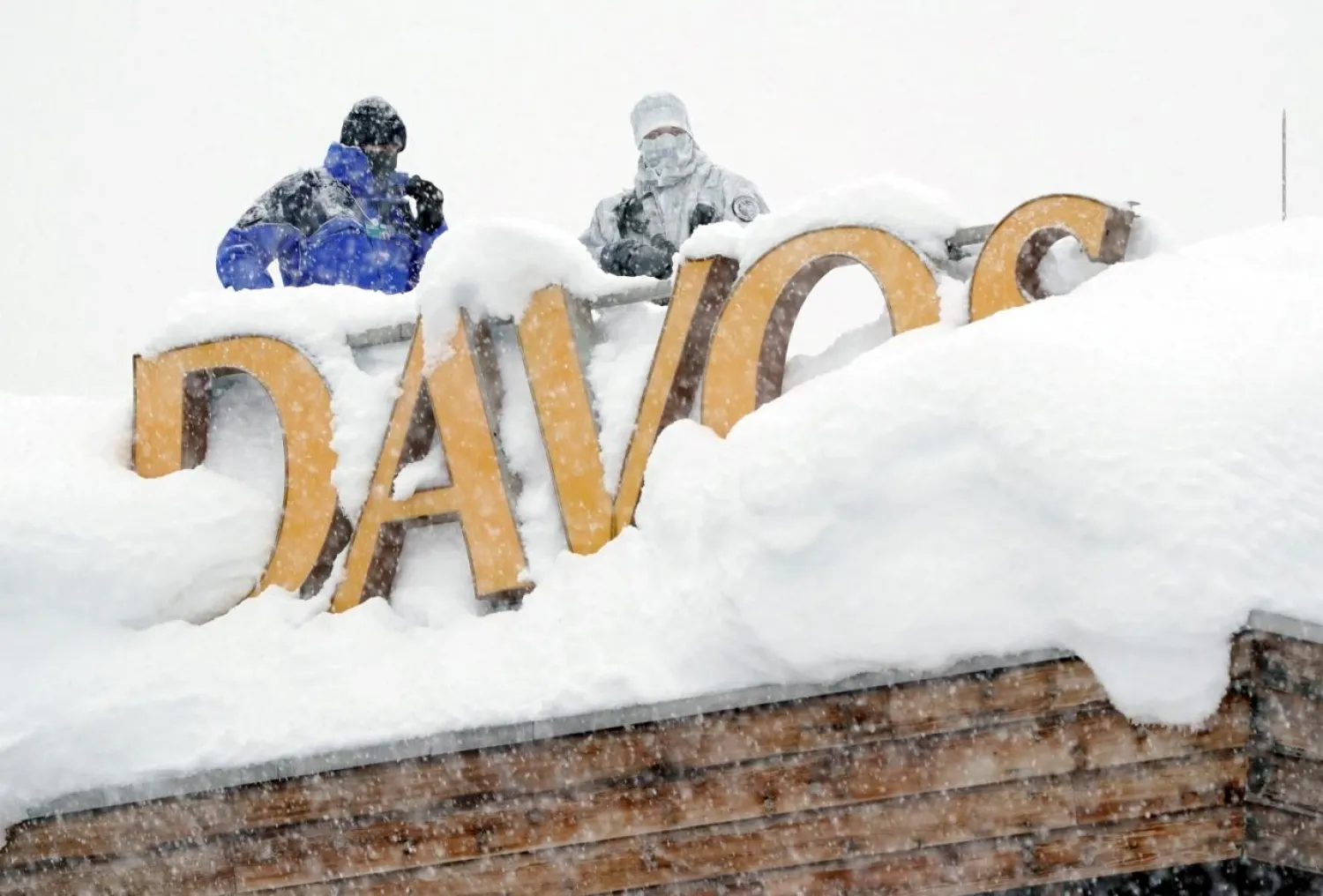The World Economic Forum is expected to kick off on Tuesday basking in robust global growth but facing warnings that the world's have-nots are missing out more than ever.
Indian Prime Minister Narendra Modi is to deliver the first keynote speech of the WEF in the Swiss resort, bookending a week that will climax in an address by US President Donald Trump, a year after he took office on a populist platform that demonised the globalist Davos crowd.
The president's trip had seemed in doubt due to a government shutdown triggered by congressional warfare last week. But a deal struck Monday freed him to travel, the White House said.
Undermining rosy data on the world economy are warnings that elite fora such as Davos must start finding solutions for everyone else down the income ladder as the "one percent" amass untold riches a decade since a major financial crisis erupted.
"We certainly should feel encouraged, but we should not feel satisfied," International Monetary Fund (IMF) chief Christine Lagarde said on Monday, presenting an upbeat update to the organization's forecasts for global growth.
Accounting group PwC underscored the IMF's positive outlook with survey findings pointing to record confidence among company bosses worldwide.
The survey had good news for Trump, touting his party's huge corporate tax cut as a boon for the US and foreign investors.
But in a separate report unveiled in Davos, Oxfam said the world's richest one percent raked in 82 percent of the wealth created last year while the poorest half of the population received none.
The British charity described a global economy in which the wealthy few amass ever-greater fortunes while hundreds of millions of people are "struggling to survive on poverty pay".
Few countries display the abyss between rich and poor as much as India, where newly minted billionaires live in close proximity to street urchins. The gap endures despite rapid growth under Modi's right-wing government.
The Hindu nationalist leader -- accompanied by several ministers, a high-powered business delegation, and two yoga instructors -- will advertise India's appeal for investors as he vies to untangle decades-worth of red tape.
Laster, Canadian Prime Minister Justin Trudeau gives an address on his agenda for Canada's presidency of the G7 world economic grouping.
Bollywood superstar Shah Rukh Khan was one of three celebrities awarded on Monday night by the WEF for their humanitarian work, along with singer Elton John and actress Cate Blanchett.
The Alpine resort of Davos has been hit by its heaviest snowfall in two decades, raising avalanche warnings.
Some 70 other leaders are expected, including French President Emmanuel Macron, whose campaign for a "French Renaissance" kicked into overdrive Monday as his government welcomed 140 multinational business leaders en route to Davos.
British Prime Minister Theresa May meanwhile faces the challenge in Davos of persuading many of the same bosses that Britain remains a safe haven for investment, despite its messy Brexit divorce from the European Union.
Part of the main train line into Davos had been buried in snow over the weekend, forcing people onto buses, and helicopters were disrupted by poor visibility.
Some pre-summit meetings were canceled or delayed as the first waves of delegates waded through snow-blanketed streets with luggage, looking for their hotels, or had to wait for road crews to dig their limousines out of drifts.
Businessmen slipped over on icy patches as snow plows roamed the streets, with the snow returning as fast as the machines could clear it.
World Economic Forum communications chief Adrian Monck said it appeared to be the heaviest snowfall for the four-decades-old summit since 1999-2000, though he described it as more of an inconvenience than a real threat to attendance.
“We know the snow causes inconvenience and it puts a lot of pressure on the city of Davos as a host but so far we have not seen any drop-off in registrations,” Monck said.
The snowfall eased on Tuesday, with clouds and sunshine forecast for later in the week when other world leaders arrive.









